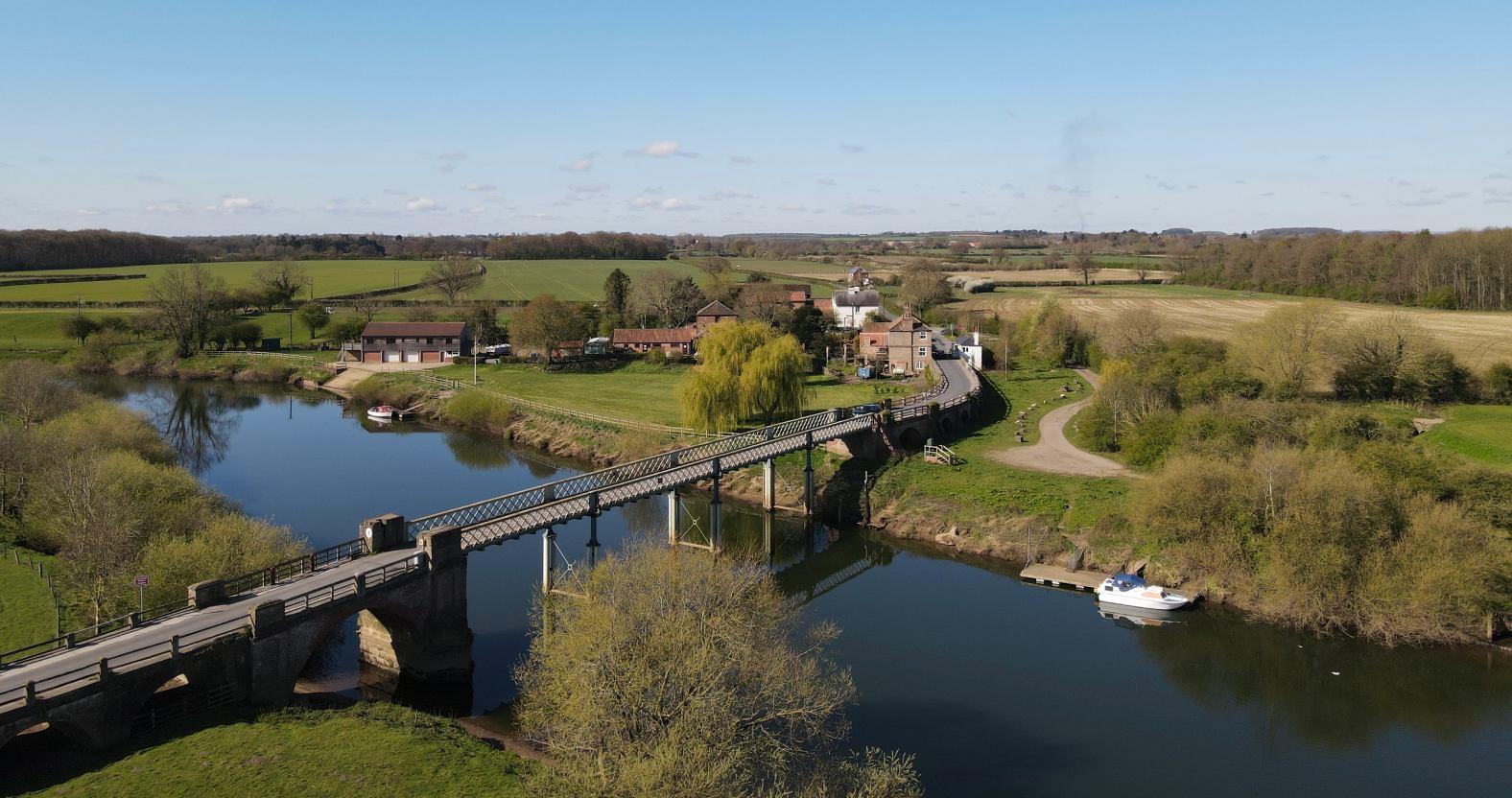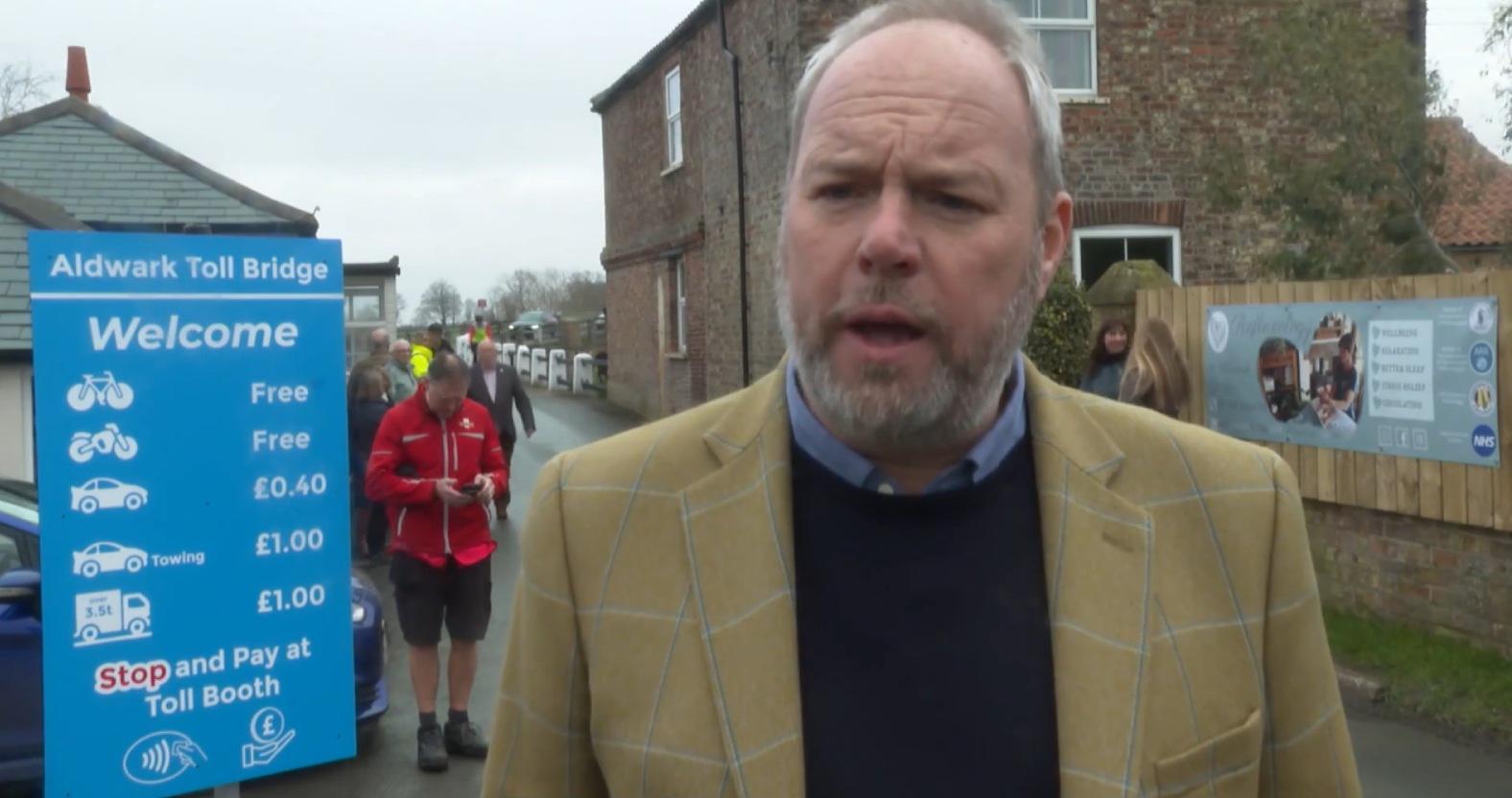Subscribe to trusted local news
In a time of both misinformation and too much information, quality journalism is more crucial than ever. By subscribing, you can help us get the story right.
- Subscription costs less than £1 a week with an annual plan.
Already a subscriber? Log in here.
15
Jan
Aldwark Bridge owner defends toll increase ahead of public inquiry

The owner of Aldwark Toll Bridge has defended his proposal to increase the fee to cross it, ahead of a public inquiry launched by the Department for Transport (DfT).
The Westwick Group, headed by Derbyshire-based businessman Alex Bell, intends to raise the bridge toll for motorists from 40p to £1, but the plan has drawn objections from many local residents. The headteacher of a local primary school has calculated it could cost parents up to £800 a year and warned it could force some to pull their children out of school.
But according to figures contained in Mr Bell’s application to raise the toll, the bridge has been making a loss for years, and he says the increase is necessary to maintain the bridge in good condition.
Speaking exclusively to the Stray Ferret, he said:
The bridge is effectively financially bust, and needs the increase in order to help it meet its running costs.
The price went up 20 years ago, from 15p to 40p, but hasn’t gone up in the two decades since, so the running costs have overtaken the income.
Aldwark Toll Bridge is the only remaining toll bridge in Yorkshire, and crucially, the only road crossing of the River Ure between Boroughbridge and York.
According to the Acts of Parliament that govern its operation, its owner may charge a toll that both meets the bridge’s running and maintenance costs and provides “a reasonable return upon the paid-up share capital of the undertaking”.
Mr Bell said:
That means I’m not allowed to put up prices just to make lots of money out of it, but I am allowed to cover my costs.
We’ve spent £1 million on that bridge. We’ve taken the deck off, stripped it down and completely renovated it, so it should be ready to last another 20 years.

Alex Bell at the re-opening of Aldwark Bridge last year. Image: ITV.
Cracks, corrosion and rot
An inspection of the bridge in 2020 by structural engineering consultancy Mason Clark Associates found a long list of defects, including large cracks, corroded ironwork, missing bricks and rotten timber.
To make the necessary repairs, Mr Bell closed the bridge for 10 months from April 2023, reopening it with a ceremony involving a horse and carriage in February 2024. He said:
When we were sandblasting the old paint off, we found that there was a broken bolt. We had to have one specially made to match, because you can’t have a metric bolt on an imperial bridge. So we’ve done it all properly.
We’ve really invested a lot in the bridge, and we just want to see a reasonable return on that capital.
Incremental price rises
Mr Bell’s application to the DfT proposes to raise the fee for vehicles under 3.5 tonnes to £1, with further rises after four years to £1.20, after seven years to £1.30, and after 10 years to £1.40.
For vehicles weighing between 3.5 tonnes and 7.5 tonnes, the initial fee increase would be to £2, with subsequent rises to £2.20, £2.40 and £2.60.
Vehicles weighing more than 7.5 tonnes are prohibited, and motorcycles go free.
Mr Bell said:
We purchased the bridge and in good faith doubled our investment by renovating it completely.
We’ve also attached a 10-year financial plan to it to allow for further gradual price increases, so that there are no shock rises in the future.
In 2022, Mr Bell attempted to increase the toll from 40p to 80p, but the DfT rejected the proposal, saying the company couldn’t justify it.
Public inquiry
Now it has appointed an inspector and called a public inquiry, which will begin at 10am on Tuesday, March 18 at the Galtres Centre, on Market Place in Easingwold. It will last for four days, until March 21.
Members of the public have until Friday, February 7 to make any submissions to the inquiry.
Mr Bell said:
At the public inquiry I’ll have with me a barrister and an accountant, as well as reports from heritage, construction and traffic consultants, so that we can demonstrate that what we’re asking for has been properly accounted for.
I’m very hopeful. We’re confident that we can meet all the requirements of the Act that governs the bridge.
Asked if any discount could be made for local residents, Mr Bell said:
The toll cannot be lowered for people who live nearby. It has to be the same for everybody, because it costs a defined amount to run a bridge. It doesn’t cost less for local people.
If you don’t use the bridge, you have to go up to Boroughbridge or down to York. The bridge saves people a 22-mile round-trip, which takes a lot more time and costs far more than £1 to drive. For people who need to use the bridge, it’s excellent value.
Mr Bell bought the bridge about five years ago, but rather than yielding any return it has so far cost him a good deal of money. So why did he buy it?
He said:
I just loved it. I took one look at it and thought I really liked it and could improve it.
The old owner didn’t spend a penny on its upkeep in 20 years, so I just wanted to bring it back to its former glory.
It’s a heritage asset and it will outlive me – I’m just its custodian.
2